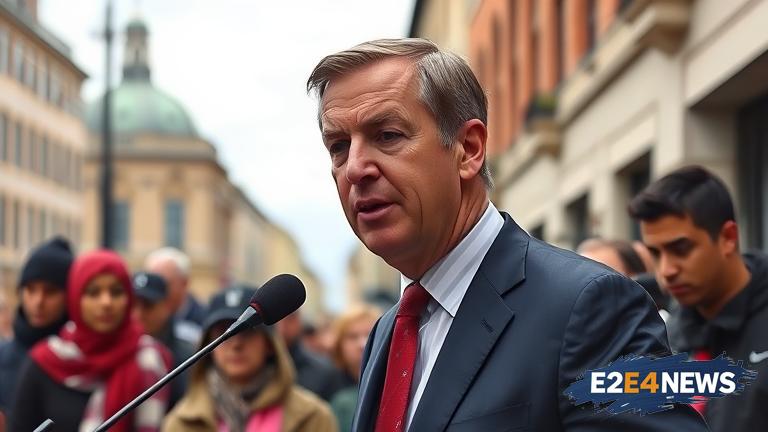Nigel Farage, a prominent British politician, has recently spoken out about the need for reform in the deportation process of migrants. He emphasized the importance of ensuring national security and public safety, highlighting the potential risks associated with allowing individuals with questionable backgrounds to remain in the country. Farage’s comments come at a time when the UK is grappling with the challenges of managing its borders and addressing the concerns of its citizens. The issue of migration has been a contentious one in British politics, with many arguing that the current system is in need of overhaul. Farage’s proposal for reform has sparked a heated debate, with some hailing it as a necessary step towards protecting the nation and others criticizing it as overly restrictive. The UK’s deportation policies have been under scrutiny in recent years, with many arguing that they are not effective in removing individuals who pose a threat to national security. Farage’s call for reform is likely to resonate with many who feel that the current system is failing to adequately address the concerns of citizens. The politician’s comments have also sparked a discussion about the need for greater transparency and accountability in the deportation process. Many have argued that the current system is shrouded in secrecy, making it difficult for the public to understand how decisions are made and why certain individuals are allowed to remain in the country. Farage’s proposal for reform includes measures such as increasing the use of technology to track and monitor migrants, as well as implementing stricter criteria for determining who is eligible for deportation. The politician has also emphasized the need for greater cooperation between law enforcement agencies and immigration officials to ensure that those who pose a threat to national security are identified and removed from the country. The issue of migration is complex and multifaceted, and any attempts at reform will need to balance the need to protect national security with the need to uphold human rights and ensure that individuals are treated fairly and with dignity. Farage’s call for reform is likely to be met with resistance from some quarters, but it has also sparked a necessary debate about the need for change. The UK’s deportation policies are in need of reform, and it is imperative that policymakers take a comprehensive and nuanced approach to addressing the challenges associated with managing the country’s borders. The use of technology, such as biometric data and artificial intelligence, could play a key role in improving the efficiency and effectiveness of the deportation process. Additionally, increasing transparency and accountability in the decision-making process could help to build trust and confidence in the system. However, any reforms will need to be carefully considered to ensure that they do not infringe upon the human rights of migrants or create undue hardship for individuals who are seeking to make a new life in the UK. The debate surrounding migration and deportation is likely to continue, and it is essential that policymakers engage in a thoughtful and informed discussion about the best way forward. The UK’s approach to deportation will have significant implications for national security, public safety, and the well-being of migrants, and it is crucial that any reforms are carefully considered and implemented in a way that balances these competing interests. Farage’s call for reform has highlighted the need for a comprehensive and nuanced approach to addressing the challenges associated with migration, and it is imperative that policymakers take a thoughtful and informed approach to addressing these issues. The use of stricter criteria for determining who is eligible for deportation, as well as increased cooperation between law enforcement agencies and immigration officials, could help to improve the effectiveness of the deportation process. However, any reforms will need to be carefully balanced against the need to uphold human rights and ensure that individuals are treated fairly and with dignity. The issue of migration is complex and multifaceted, and any attempts at reform will require a deep understanding of the challenges and complexities involved. Farage’s proposal for reform has sparked a necessary debate about the need for change, and it is essential that policymakers engage in a thoughtful and informed discussion about the best way forward.
